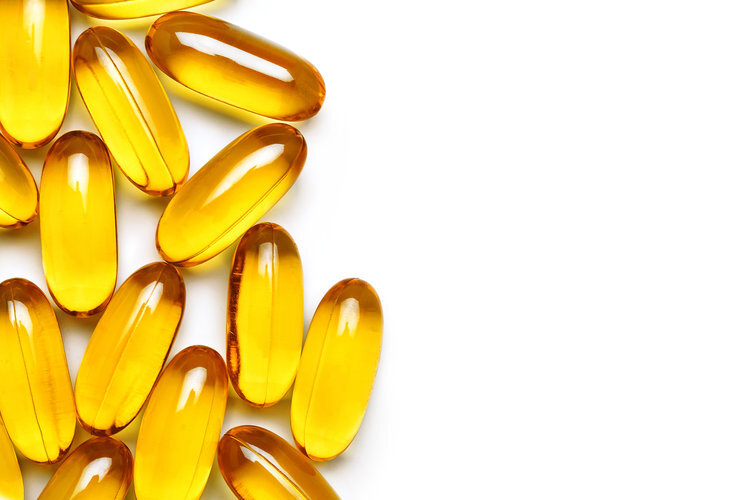HOW OMEGA 3 FATTY ACIDS HELP YOUR HORMONES
It’s no secret that omega 3 fats are good for you. Find out how they increase serotonin, reduce testosterone and PMS, and improve your overall hormone balance.
But first, an overview.
OMEGA 3 FATTY ACIDS ARE JUST ONE CATEGORY OF MANY TYPES OF FATS, AND THERE ARE THREE VARIETIES:
ALA (alpha linolenic acid) is a plant fat found in flax seed, sacha inchi seed, hemp seed, chia seed, and walnuts.
DHA (docosahexaenoic acid) and EPA (eicosapentaenoic acid) are animal fats found in salmon, tuna, trout, cod, and oysters.
Omega 3s are part of the phospholipid bilayer in the membrane of your cells. This means that they help regulate cellular communication in every area of your body. Omega 3s also form a large percentage of brain matter and the foundation of both pro- and anti-inflammatory compounds.
To read more about different fats, read my blog about how to choose a cooking oil.
Omega 3s reduce inflammation
Probably the most-researched use for omega 3 fatty acids is related to their ability to reduce inflammation. Most people think of joint lubrication, skin clarity, and cardiovascular health, but the anti-inflammatory effects of omega 3s contribute to hormone balance as well. Chronically elevated insulin (which is all too prevalent in our society due to stress, food timing, and highly processed food) and other sources of inflammation can lead to the overproduction of estrogen. Omega 3s can help normalize estrogen levels (see below) and also reduce the inflammatory effects that result from imbalanced hormones.
Omega 3s balance estrogens
There are several types of estrogen, and the full exploration of these types and their functions is beyond the scope of this blog. However, you can know that sufficient omega 3 intake supports an optimal estrogen 2/16 ratio, reducing cellular stress and risk of breast cancer. ALA is especially useful for this purpose because it contains lignans, which are phytoestrogens. Phytoestrogens are plant compounds that have lower estrogenic activity than estrogens produced by the body. Lignans and other phytoestrogens can block estrogen receptors from utilizing the stronger, more harmful estrogens. In PCOS, the estrogen 2/16 ration is usually too high, so those with PCOS should work with a practitioner to find the therapeutic omega 3 dose that is right for their unique health situation.
Omega 3s lower testosterone
Some people have insufficient testosterone and some have it in abundance. Either situation is not ideal. Women with elevated androgens (precursor to testosterone) tend to have stronger PMS symptoms, and high androgen and/or DHEA production is typical for women with PCOS. An omega 3 supplementation dose of 2-3 grams improves menstrual regularity and lowers testosterone in women with PCOS. Even if you take 2 grams only during the last half of your cycle, PMS symptoms typically improve. However, men shouldn’t worry about taking omega 3s, as they seem to behave differently in men and are associated with improved testicular function. This is probably why 2-4 grams of supplemental omega 3 can improve libido. Dose depends on body weight, and should be increased gradually rather than taken initially.
Omega 3s improve serotonin effectiveness
Sufficient serotonin is vital to a happy menstrual cycle. During the second half of the cycle, serotonin tends to be lowered in response to other hormone changes. This often results in moodiness and cravings. Omega 3s to the rescue! EPA actually increases the release of serotonin by reducing prostaglandins, which are inflammatory compounds that inhibit serotonin function. In addition, DHA increases the receptivity of serotonin receptors. The combination of omega 3s results in improved serotonin effectiveness, which helps overall mood and hormone balance. Sufficient vitamin D is required for this process to be effective, so check to make sure that your levels are above 60 and, if needed, supplement accordingly.
WELL THERE YOU HAVE IT!
Omega 3s do more than just help your brain function. They are an integral part of hormone regulation and can have a therapeutic affect if you are suffering from symptoms of hormone imbalance. Keep in mind that omega 3s should not be taken in high doses if you’ve recently had or plan to have a surgery, transfusion, or blood loss. These fats thin the blood and high dosing must be avoided in such situations. This is why it’s always a good idea to work with a knowledgeable practitioner when combining supplements, medications, and health conditions.
If you are concerned about hormone imbalance, read this article for more information about testing, and reach out to me with questions! Just ignore the last paragraph…you can improve your hormone balance in many ways without changing the number on the scale.
Want to stay up-to-date on the latest nutrition research for hormone balance? Scroll all the way down to sign up for my email list and I’ll keep you informed!



